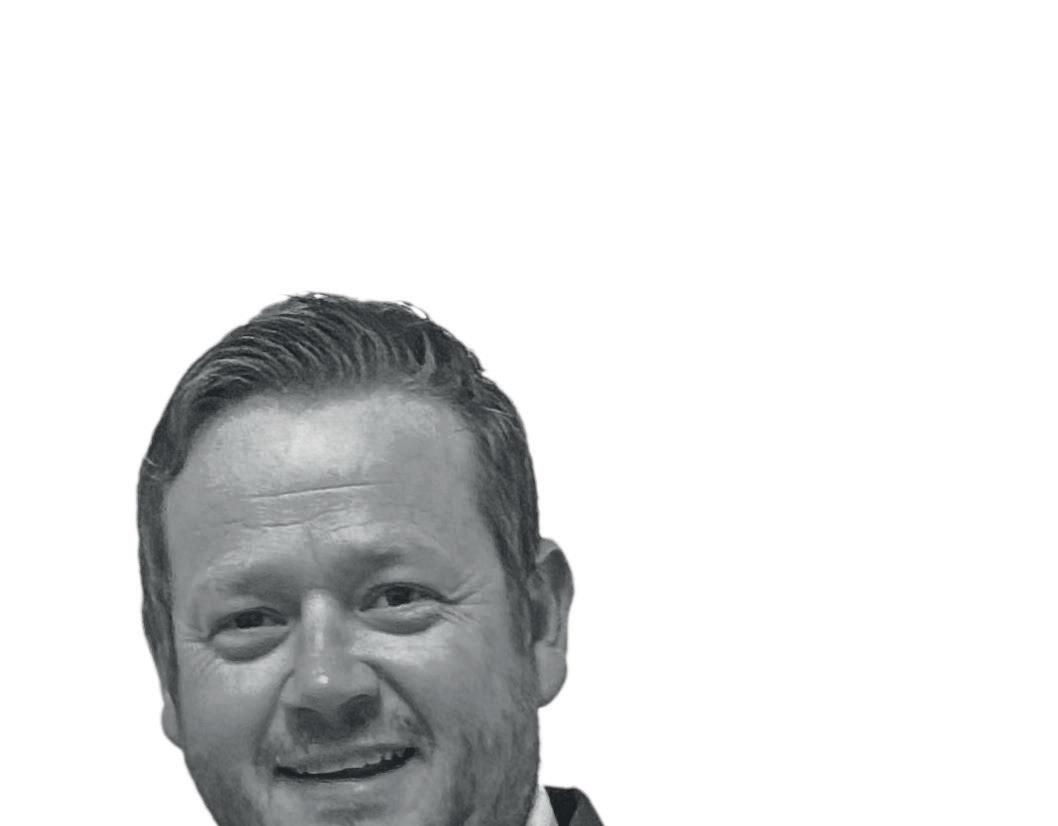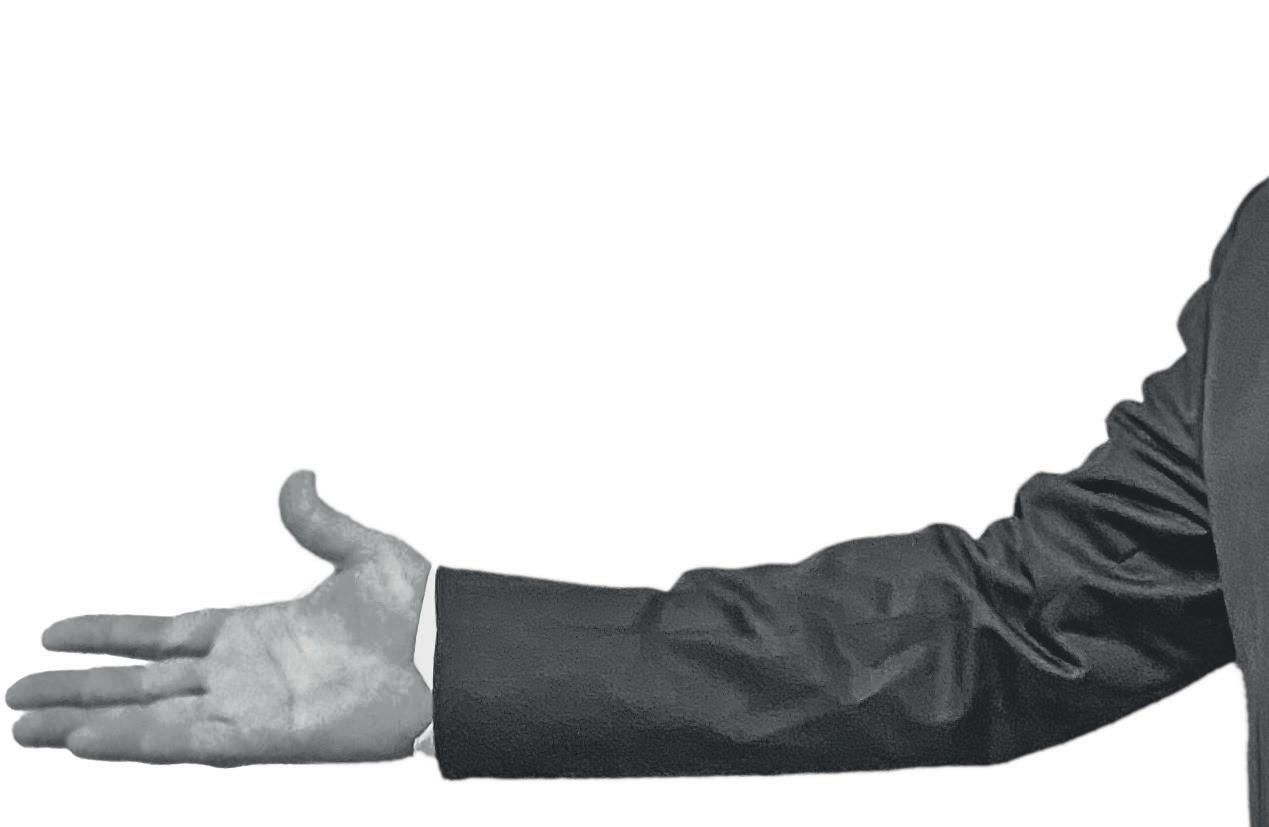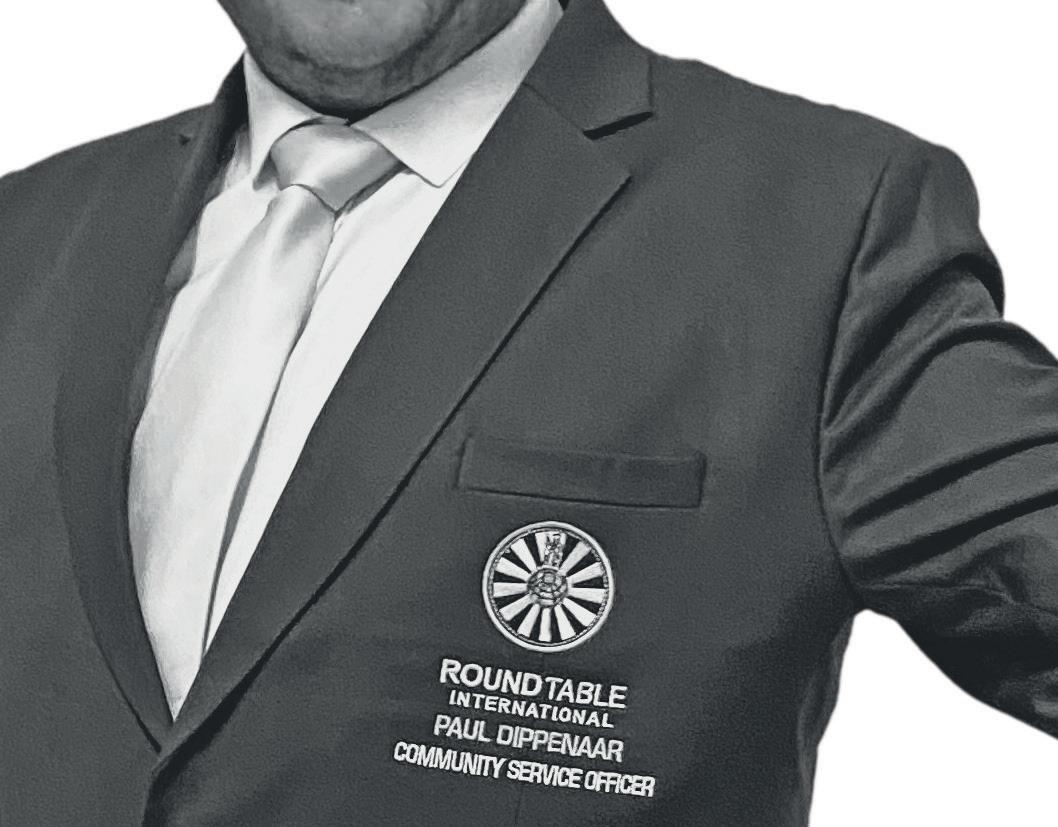
5 minute read
BEING A GOOD CSO
By Mr PAUL DIPPENAAR, Round Table International CSO
WHEN I FIRST RECEIVED this topic, I thought it would seem very arrogant to write about such a topic when you are currently holding the office. The opposite of arrogance is humility, which would be one of the biggest traits a great CSO should have. I decided to still write the article but in general and not necessarily reflect on myself. John Maxwell once said:” The pessimist complains about the wind. The optimist expects it to change. The leader adjusts the sails.” We are all about this when we adopt, adapt, and improve.
After looking and comparing leadership against being a good CSO, I thought it wise to list some TIPS on how to be a good CSO. They are in no particular order, as I believe they are all critical.
LEARN WHAT TABLERS WANT
As a CSO, you may think you have it all figured out. But do you? Are you really in touch with your members, and do you know what they want? Also, understand how much participation they want and if a project is by choice or prescriptive. From my experience, members will participate if they see the need for it but prescribing it hardly ever succeeds.
NOT ABOUT THE RECOGNITION
As a CSO, your role is to serve and create a platform where we, as Tablers, can impact our communities. Serve wholeheartedly; the difference being made is more than a sufficient reward for your efforts. '
CONSIDER TABLER’S BACKGROUNDS
As a CSO, it is important to have a clear knowledge of the backgrounds and demographics of the different Associations. Remember that not all Associations focus on the same projects or pillars. A valid question is: “Do we offer enough, and do we offer at least one project each member can participate in?”. Making it easy for others to buy into and participate is vital.
EVALUATE PROJECTS FOR REACH AND SUCCESS
As a CSO, it is paramount to evaluate every project once completed. Try to measure its impact and the number of lives touched. Accept feedback, comments, and even criticism from others and see it as an opportunity to grow and build projects.
WORK AND CELEBRATE PROJECT SUCCESS AS A TEAM.
As a CSO, it is essential to remember that you are part of a team. Not just the RTI board but a group of 30 000 brothers from 60 Associations. It is essential to work together. Recognize the contributions of other team players. Find joy and celebrate our project successes knowing that we impacted many lives and left today in a better state than we found it yesterday. All achievements must be celebrated from the smallest team to the largest team.
BRING TABLERS TOGETHER
As CSO, we often have pre-set ideas of how a project can and should be run. Allow guys to build and brand the project as they see fit. This creates camaraderie, which is very important. Projects that run across the borders, be it a school project in Nepal or a global blood drive, allow us to connect, challenge and contribute worldwide.
HAVE FUN WHILE DOING GOOD.
As a CSO, it is vital to promote fun and fellowship. This is easily achievable when we focus on the end goal, are aligned on the project objectives, and do this with a band of brothers that share the same values in life.
CHOOSE YOUR PROJECT WITH CAUTION
As CSO, we must realize that there are thousands of worthy causes, and we cannot support them. At some stage, we have to prioritize where we can make the biggest impact. We cannot change the world in one day. But one day, the world will change if we keep on doing what we do
ACTIVATE YOUR TABLE NETWORK
As CSO, we are privileged to have access to 30 000 brothers from all walks of life. Engage with them, and you will soon realize that no network or skillset is unaccounted for. Feel free to ask for assistance as it will widen your horizons and help expand and build better projects.

SINCE BEING A CSO, I realized that there are also qualities that will help me improve my service to the community.
One of the key qualities should be empathy. Empathetic people can relate to other people’s problems and experiences and see other people’s views rather than their own. Relating to these problems is key to people opening up to you and understanding certain situations.
Another quality I found to be of importance is if you are organized. Administrative skills and being organized are very important, as you would simultaneously work on a different project and with different role payers. You should always keep track and be on top of your game.
Lacking patience was one of the missing qualities I found most frustrating. As Tablers, we sometimes refer to Table Time, and if it wasn’t for doing things last moment, nothing would have been done. Although this is not always the case, you should be able to allow enough time for the Tablers to plan and to give adequate feedback as we all do this in our free time. Try not to burden your Tablers with unnecessary workload and expect them to do this immediately. I found that proper communication is vital and that write-ups and project outlines should be shared well in advance.
The last quality I found to be challenging was fl exibility. Being a CSO does not require that much time but constant engagement. One might sometimes fi nd it hard to juggle family life, work commitments, and table life. For that, I’d recommend proper planning.
Using these tips and qualities, I am sure you will be a great asset in your own role as CSO.
Yours in table
Paul Dippenaar
cso@round-table.org
























